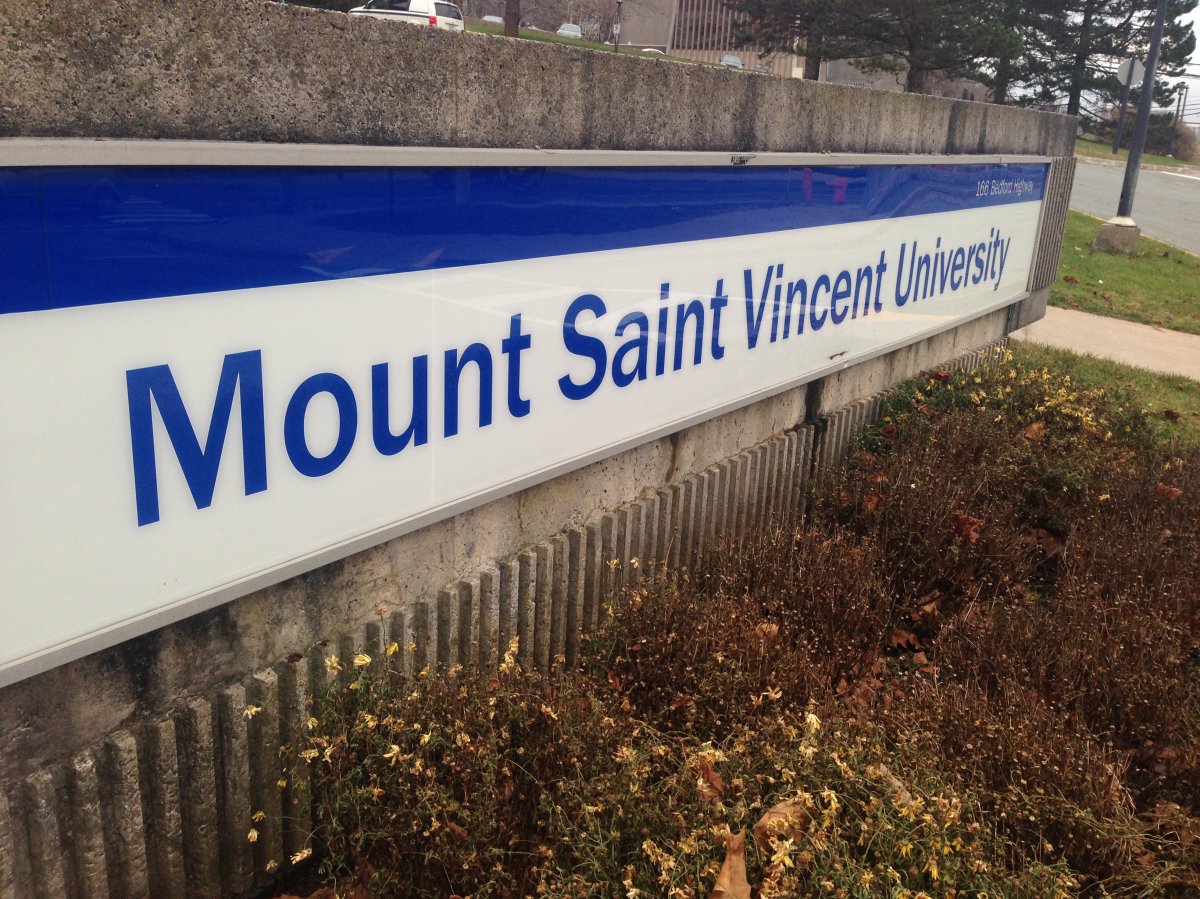A Halifax university is standing by one of its professors after it came under fire for having a non-Indigenous professor teach a course about Canada’s residential schools.

Mount Saint Vincent University in Halifax said in a statement on Tuesday that Martha Walls will still be teaching the course she developed this fall.
The decision came after a meeting on Tuesday that discussed the concerns raised on social media — primarily that only Indigenous Peoples have the lived experience to understand the complex and cumulative ways they’ve been discriminated against, and that they should teach their own history.
The university says the meeting included Walls, indigenous and non-Indigenous faculty members, members of the university’s history department, the senior advisor to the university president on Aboriginal Affairs, and other members of the senior administration.
“Walls has the support of Indigenous and non-Indigenous faculty and administration at the Mount, to teach the course regarding residential schools,” the university said in a statement, arguing that Walls is a well-regarded scholar of First Nations history.
“Walls’ curriculum will prioritize first voices, Indigenous narratives, firsthand accounts and primary sources… an approach that is consistent with academic inquiry that often reaches beyond one’s own community or identity.”
READ MORE: Halifax university condemned for handling of residential-schools course controversy
Social media controversy
The decision to assign a “settler scholar” to teach the course was decried on social media last week as a kind of historical appropriation and reinforcement of the systemic oppression of First Nations.
“Part of reconciliation is making space for Indigenous faculty members at universities and Indigenous knowledge perspectives,” Patti Doyle-Bedwell, a Mi’kmaq woman and Dalhousie University professor, said on Friday.
“We’re talking about indigenizing the academy.”
But Sherry Pictou, a women’s studies professor at the university who is Mi’kmaq, spoke out in support of the history professor assigned to the course.
Despite the outcry on social media, Pictou said she has “full confidence” in Martha Walls as both as a historian and an ally to the Indigenous community.
Furthermore, she said the work of decolonizing “cannot fall just on the backs and labour of other Indigenous academics.”
WATCH: Trudeau disappointed by Pope’s decision not to apologize for residential schools

Academic freedom
The decision to call a meeting proved controversial to some members of the academic community, with the Society for Academic Freedom and Scholarship saying the decision undercut university collegiality and academic integrity.
Mark Mercer, president of the society and a philosophy professor at Saint Mary’s University in Halifax, said that the issue should be judged on academic grounds alone.
“The race or ethnicity of the professor is not an academic ground and, thus, should not be a consideration,” Mercer said in a letter to Elizabeth Church, vice-president academic and provost at the school.
“The idea that only Indigenous scholars can teach topics involving Indigenous People is false and pernicious. Mount Saint Vincent University should clearly and forcefully repudiate it.”
MSVU statement
A large portion of the MSVU statement seemed like an attempt to repudiate both groups’ fears.
“Indigenous faculty and staff at the Mount believe that true allies committed to honest reconciliation – like Dr. Walls – must be engaged in sharing knowledge of First Nations/Canadian history in order to reach all those in education who should be reached with this important information,” the statement from MSVU read.
“Truth and Reconciliation is a partnership. The work of reconciliation requires us to have complex and sometimes challenging discussions… In keeping with our commitment to academic freedom, today’s meeting represents our responsibility as an academic institution to take up difficult questions.”
The university said it recognizes the consequences of colonization and says it is committed to working with Indigenous Peoples inside and outside their school.
“We will continue to strongly support Indigenous students and communities, including increasing the number of Indigenous faculty in the University,” the university said.
More than 150,000 First Nations, Metis, and Inuit children were taken from their families – often by force – to attend government residential schools, according to findings by the Truth and Reconciliation Commission.
With files from the Canadian Press




Comments